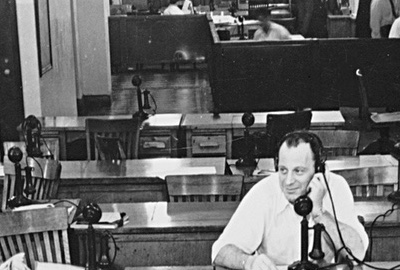 2022-05-08
2022-05-08
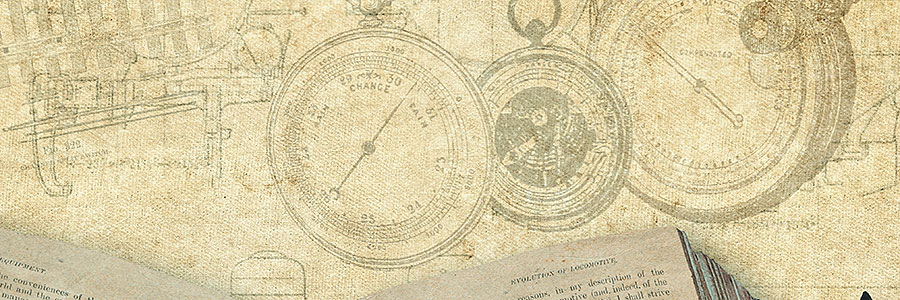
4 Famous Inventors Who Changed The World
- ArticlesandContent.com (CIRCA 2005)
- /
- Oct 8, 2021 (written 2005)
Invention has brought with it more than could ever be imagined. Though invention, we were able to evolve beyond the simple gathering and hunting groups and achieve civilization.
Even as hunters, invention made our lives better and allowed us to move forward as a species. Someone had to invent the production of fire as well as the fashioning of primitive knives and tools. While early history doesn’t remember any of our famous inventors, we still owe them our current livelihoods.
Eventually, we were able to invent more complex machines. Simple by today’s standards, some of these machines eventually allowed us to make clothing and tools that were completely man made and not something we picked up off the ground and fashioned into a workable device. Civilization itself was born of invention as we found ways to make enough food that we no longer needed to follow herds of animals, but could create the food in the places we wanted to live. We designed weapons that allowed us to no longer need to fear what nature could through at us. We were able to improve upon these with further inventions that allowed man made devices to do more of the work for us as well as doing work we simply could not do for ourselves before.
While improving on our existing abilities has been one of the most obvious improvements, the famous inventors’ that have created devices whose purpose is wholly beyond the ability of man himself has yielded the most amazing technology. Rocketry is one of those creations.
Early rockets were simple fireworks that had no real practical purpose, but it wasn’t long before someone realized that these could be adapted to military use. Early attempts at this were largely just used for psychological warfare due in part to their wild inaccuracy. By the 20th century however, technology had advanced to the point that the time of the rocket was at hand. Created in all sizes and configurations, these powerful weapons of war changed the face of the battlefield. Not to mention becoming for the first time in history, a method of transportation. We were only able to get to this point with the help of many famous inventors that worked in the field of Rocketry. Some of these are mentioned below.
Isaac Newton
While not often associated directly with Rocketry, the 3 laws of physical motion devised by Newton allowed for the function of rockets to be explained, not only within our atmosphere, but amazingly, his rules still hold try when used in the vacuum of space. His laws from the 17th century still hold sway today when it comes to modeling the performance and characteristics of rocket flight. Newton was born in 1642 and was fascinated by the work of the recently deceased Galileo, who had proved the planets revolve around the sun. Newton is credited with creating a basic set of laws that the universe is ruled by before his death in 1727. Perhaps the most famous of which are his three laws of motion. Every object in the universe follows these rules. More information about Isaac Newton can be found at http://www.newton.ac.uk/newtlife.html.
“Truth is ever to be found in simplicity, and not in the multiplicity and confusion of things.”
Robert Goddard
With over 70 patents to his name and one of the fathers of modern rocketry Robert Goddard is certainly one of America’s most famous inventors. By 1926, Goddard had created the Holy Grail for rocketry, the liquid propelled rocket. This allowed him to also to create such things as the variable thrust rockets and rockets that could be stopped and started again. The idea of using vanes and gyroscopes to stabilize and guide rockets is also attributed to Goddard. He made other major advances including the first test to actually prove a rocket would function in a vacuum, even without an atmosphere for the thrust to push against. He was also the first to attach any kind of scientific payload to a rocket and launch it. While it was a simple camera and a barometer, it began the trend of using rockets to carry payloads into the sky, or even into space. Robert Goddard was born in 1882 and died in 1945. NASA has honored this pioneer of Rocketry with the Goddard Space Center. More information about Robert Goddard can be found at http://www.nasa.gov/centers/goddard/about/dr_goddard.html.
Konstantian Tsiolkovsky
While many had dreamed of using rockets to win wars, Tsiolkovsky was the first who seriously looked at rockets a means to travel in space. In 1898 he submitted what would become the blueprint for space travel, his article titled "The Investigation of Outer Space by Means of Reaction Apparatus," That he did this in the 19th century, as well as being self taught makes it all the more amazing. A writer of great technical papers as well as science fiction, he essentially gave Russia the plans for a space ship in 1903, well ahead of anyone else. He is also credited with introducing the ideas of satellites and multi stage rockets. Tsiolkovsky was born in 1857 and died in 1935. More information about him can be found at http://www.informatics.org/museum/tsiol.html.
“The Earth is the cradle of humanity, but mankind cannot stay in the cradle forever.”
Wernher Von Braun
Born in 1912, Von Braun would become one of the most important figures in the advancement of rocketry into space flight during the 20th century. He was hooked from an early age with the idea of space travel, mostly due to his reading of the writings of Jules Verne and H.G. Wells. His love of building rockets took him to the German Army where he was charged with building ballistic missiles for the German army. Likely the most important invention of this period of his life was the V-2 rocket. Terribly devastating as a weapon of war, it was the direct parent of the first space travel rockets adopted by both the United States and Russia after they were able to study the V-2. Von Braun organized the surrender of over 500 German Rocket scientists to the American army at the end of WWII. He then worked with NASA to develop the Saturn V rockets and later became the director of the Marshall Space Center. Von Braun died in 1977. More information about the life of Von Braun can be found at http://history.msfc.nasa.gov/vonbraun/bio.html.
More From Business
 2022-05-08
2022-05-08
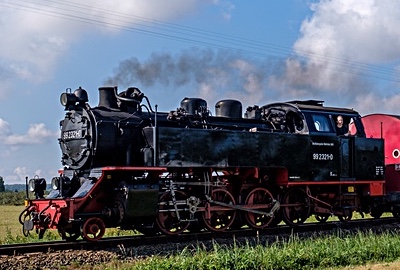 2022-05-08
2022-05-08
Real Life Railroad Tycoons
 2022-05-08
2022-05-08
3 of the Most Famous Entrepreneurs
 2022-05-08
2022-05-08
History of Philanthropy
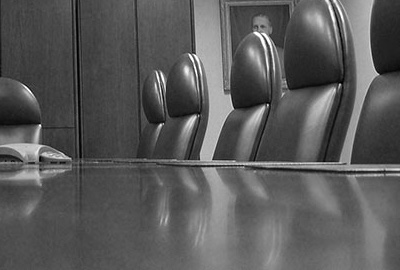 2022-05-08
2022-05-08
Birth Of The Corporation
 2022-05-08
2022-05-08
What Was The Dot Com Bust?
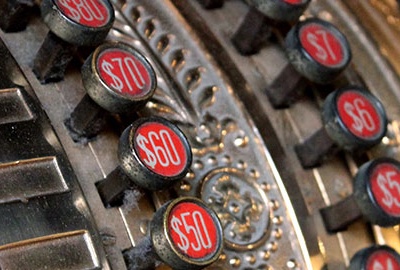 2022-05-08
2022-05-08
History Of American Business
 2022-05-08
2022-05-08
How Wall Street Began
 2022-05-08
2022-05-08
1929 Stock Market Crash
 2022-05-08
2022-05-08
A Few of the Most Famous CEOs
 2022-05-08
2022-05-08